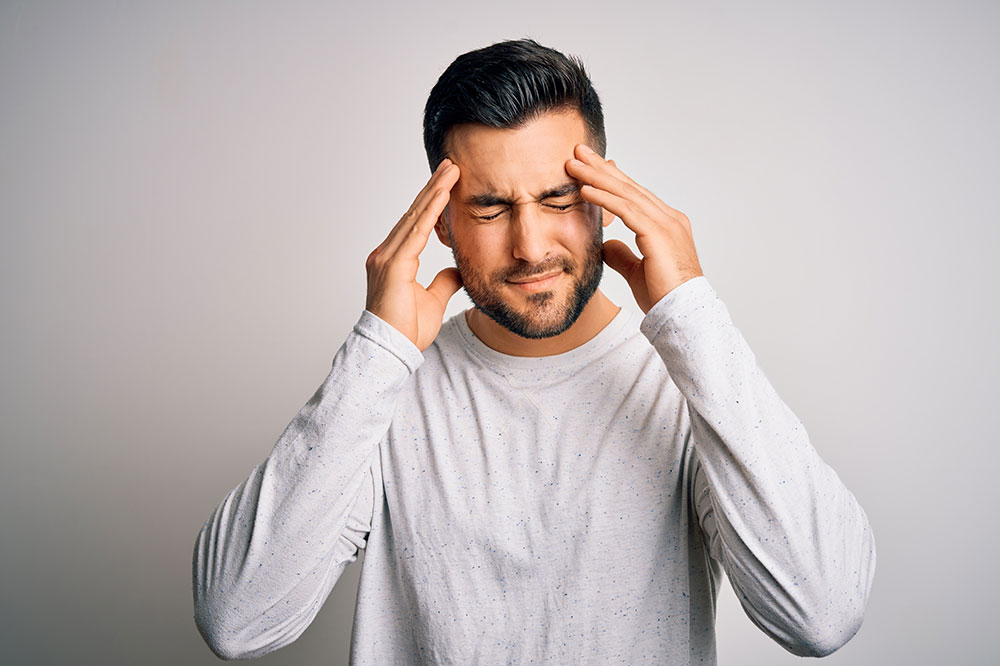
Migraine – Triggers, best foods, and management options
Migraines are characterized by intense headaches and discomfort. If one experiences a throbbing pain on one or both sides of the head and extreme sensitivity to light, they might be dealing with migraines. One can also be sensitive to sound and experience nausea. The condition can affect anyone, but research suggests that women are two to three times more likely to experience migraines than men. Further, the condition often develops during adolescence or early adulthood.
Triggers
Although the exact causes are not fully understood, migraines are considered to be the result of a combination of genetic and environmental factors. Some potential triggers are stress, hormonal changes, certain foods or drinks, lack of sleep, changes in weather or altitude, and sensory stimuli like bright lights or strong smells. There may also be a chemical imbalance in the brain involving serotonin, a neurotransmitter that helps regulate pain. Migraines can develop anytime, but here are a few triggers are known to increase the likelihood of an attack:
– Stress
– Hormonal changes
– Changes in sleep patterns
– Certain foods or drinks
– Weather changes
– Sensory stimuli such as harsh lights or loud noises
The triggers may vary from person to person.
Best foods
Here are a few foods that can help with migraine management:
Magnesium-rich foods: Magnesium has been shown to help reduce the frequency and severity of migraines. Foods rich in magnesium include leafy green vegetables, nuts and seeds, whole grains, and fish.
Ginger: Ginger is an anti-inflammatory food that can alleviate migraines. It can be added to the daily routine in various forms, including fresh ginger, ginger tea, or ginger supplements.
Omega-3 fatty acids: Omega-3 fatty acids are anti-inflammatory and may help alleviate headaches. Foods rich in omega-3s are fatty fish, flaxseeds, chia seeds, and walnuts.
Water: Dehydration can sometimes trigger migraines, so it is essential to stay hydrated by drinking plenty of water throughout the day.
Low-tyramine foods: Tyramine is a substance that naturally occurs in foods and can trigger migraines. Foods low in tyramine include fruits, vegetables, whole grains, and lean proteins.
Managing migraines
There is no permanent cure for the condition; however, the following options can help relieve symptoms:
Natural remedies: Here are a few remedies that can help alleviate migraines:
– Applying an ice pack or warm compress to the head or neck
– Relaxation techniques like deep breathing or meditation
– Getting enough sleep and maintaining a regular sleep schedule
– Regular exercise or physical activity
– Avoiding triggers such as certain foods, drinks, or stressors
– Applying essential oils such as peppermint, lavender, or eucalyptus
– Acupuncture or acupressure
– Magnesium or riboflavin (vitamin B2) supplements
These natural remedies may not work for everyone and should not replace medical treatment.
Alternative treatment: The following therapies may help relieve some symptoms:
Acupuncture: To promote healing and reduce pain, tiny needles are inserted into specific body sites during acupuncture, a form of ancient Chinese treatment.
Biofeedback: This therapy involves the use of sensors to measure bodily functions, such as muscle tension, and learning how to control these functions to reduce stress and prevent migraines.
Massage therapy: This can ease stress and increase relaxation, which may reduce the symptoms of migraines.
Chiropractic care: Chiropractic adjustments and spinal manipulation may help reduce migraine frequency and severity by relieving the tension in the neck and spine.
These treatments may not work for everyone. A healthcare practitioner should always be consulted before initiating treatment or therapy for migraines.




